Mobile homes can be an affordable and accessible way to become a homeowner, but they are usually still costly enough that buyers want to finance the purchase.
In general, it can be a bit more difficult to find financing for a manufactured home than it is for a traditional home because they tend to depreciate over time. That being said, that doesn't mean there aren't plenty of loan options for people that want to buy a mobile or manufactured home.
 Your credit score is going to have a big impact on whether you're approved for a loan as well as the rates and terms you're offered. The minimum credit score necessary to buy a mobile home is going to depend on the type of loan you apply for and the lender. While Fannie Mae and Freddie Mac have a 620 minimum, other options like FHA loans, personal loans, and chattel loans can help people with less-than-ideal credit purchase a home.
Your credit score is going to have a big impact on whether you're approved for a loan as well as the rates and terms you're offered. The minimum credit score necessary to buy a mobile home is going to depend on the type of loan you apply for and the lender. While Fannie Mae and Freddie Mac have a 620 minimum, other options like FHA loans, personal loans, and chattel loans can help people with less-than-ideal credit purchase a home.Let's take a look at what you need to know about financing a mobile home or manufactured home and how your credit score will impact your chances for approval.
When you decide to start shopping for a mobile home, one of the first questions on your mind is likely how you're going to pay for it. Considering that even the most affordable used mobile homes usually cost at least $10,000 and new manufactured homes cost more than $125,000 on average, there's a good chance you're thinking about finding financing for the purchase.
Once you start talking about taking out a loan for a big purchase, the next question that crops up is usually:
"What credit score am I going to need?"
The truth is, there is no set credit score minimum for financing a mobile home because it's going to depend on the type of loan and the lender you choose. That being said, the better your credit score, the better chance you'll be approved and the more appealing rates and terms you'll be offered.
Here's a general sense of what you can expect as far as minimum credit scores go, depending on the loan type you apply for:
Do you have bad credit but you want to buy a mobile or manufactured home? Make sure you check out our guide to buying a mobile home with bad credit.
Mobile homes, modular homes, and manufactured homes are all built in a factory and then shipped to the location where they will be set up.
Mobile homes are built in a factory and then transported to a place where the house will be set up. In some cases, metal tie-downs will be used instead of a foundation.
Mobile homes:
- Were built before June 15, 1976
- Often don't have a basement or crawlspace and instead are usually built on a metal frame
- Were built in a factory and delivered fully constructed to a location
- Might have tie downs rather than a permanent foundation
- Cost, on average, between $10k and $50k

So far, this description also fits manufactured homes. The distinction between the two has to do with when the home was constructed.
Mobile homes can be single wide (500-1000 square feet) or double wide (1,000 to 2,200 square feet)
Technically, mobile homes were built in a factory before June 15, 1976. At this point, the National Manufactured Housing Construction and Safety Standards Act was put in place by the U.S. Department of Housing and Urban Development, which changed the name of this type of home going forward and put new safety standards in place.
If you're looking for a pre-existing home that will come at a lower price than newly manufactured homes, a mobile home can be a good option.
The simplest way to understand what manufactured homes are is to see them as mobile homes that were built after June 15, 1976. Just like mobile homes, they are built in a factory and then delivered fully constructed to the location where they will be set up.

One key distinction between manufactured and mobile homes, though, other than the date of construction, is that manufactured homes aren't built with the intention of being moved once they have been put in place.
Manufactured homes:
- Were built after June 15, 1976
- Often don't have a basement or crawlspace and instead are usually built on a metal frame
- Were built in a factory and delivered fully constructed to a location
- Might have tie downs rather than a permanent foundation
- Cost, on average, $87,600
The construction of manufactured homes is highly regulated under the HUD Code, known as the Manufactured Home Construction and Safety Standards. Manufactured homes also need to meet the local building standards for the place where they will be set up, and designs for these homes have to be approved by a HUD-approved Design Approval Primary Inspection Agency.
Manufactured homes can be single wide (500-1000 square feet) or double wide (1,000 to 2,200 square feet)
Manufactured homes can be a good option for people that are looking for a home that is new but isn't as expensive as a traditional home, while also requiring no building on site.
Modular homes are also built in a factory and delivered to their final location, much like mobile and manufactured homes. However, they are a lot more like a regular home, using a traditional foundation and including either basements or crawlspaces.
Modular homes:
- Usually require some construction on site
- Are typically delivered in multiple pieces to the property
- Are more similar in size and features to traditional homes
- Usually have a traditional foundation and a basement or crawl space
- Cost, on average, $270k
Rather than appearing on the site in one piece, modular homes will usually arrive in one or more pieces and then be constructed on location by a local contractor. These homes must meet the same building codes as any other home in the same area.
Modular homes are often between 900 square feet and 2,000 square feet
Pricier than mobile and manufactured homes but still more affordable than other new construction homes, modular homes can be a good choice for people that want a new home with customizable features for a lower total cost than a traditional home.
Let's take a quick look at some of the financing options you'll want to explore when considering buying a manufactured or mobile home.
Fannie Mae has a specific program for purchasing manufactured homes known as the MH Advantage program.
In order to qualify, there are a number of qualifications you'll need to meet, including:
You might be able to put as little down as 3% for these 30-year loans.
The Freddie Mac Home Possible mortgage program could help you buy a manufactured home so long as you qualify. You can choose between fixed-rate and adjustable-rate loans, and you might be able to put as little as 3% down.
Both Title I and Title II FHA loans can be used to purchase manufactured homes. Though there are a number of requirements one must meet to qualify. This can be a great option for people that have a lower credit score but the ability to put 10% down.
Members of the military community might qualify for a VA loan for a manufactured home. With these loans backed by the Department of Veterans Affairs, lenders can sometimes offer up to 100 percent financing.
This is a particular type of personal property loan that is designed to finance pricey vehicles like boats, planes, farm equipment, and mobile homes.
This is a secured loan where the vehicle serves as collateral. This means that you can get a lower interest rate with a chattel loan than a personal loan, but it also means you can lose your mobile home if you default on the loan.
Depending on the price of your mobile home, a personal loan might cover the cost. These tend to have higher interest rates because they are unsecured loans. At the same time, there aren't costly appraisal, escrow, and title fees that are often involved when getting a secured loan for a mobile home or traditional home.
Personal loans are a type of installment loan, meaning that you borrow money from a lender and pay it back over time at a fixed interest rate in equal monthly payments.
What are the steps you'll need to take to get financing for a mobile home? Let's take a look.
One of the first things you'll want to do when you decide that you want to buy a mobile or manufactured home using financing is to take a look at your credit report.
As a part of your loan application, the lender is going to consider your credit score and file. Having a strong credit score as well as a clean credit history will make it much more likely that you will have your application accepted. Beyond that, the better your credit is, the better rates and terms you will be offered.
When you look at your credit reports-- which you'll want to pull from all three major credit bureaus-- you should keep an eye out for any inaccuracies or errors. If you find mistakes, you'll want to start the dispute process to ensure that your credit report is all cleaned up before lenders take a look at it.
Has your credit report seen better days? Check out our guides to removing evictions, 30 day late payments, charge offs, collections, and hard inquiries to help you clean up your credit file.
Buying a mobile or manufactured home means that you're also going to need a piece of land to put it on. Some people might choose to buy their own land or use a piece of land they already own, while others might plan to rent the property.
The reality is that there will be fewer loan options if you are thinking about renting land rather than buying it or using a piece of land you already own. In general, lenders are going to be more open to offering financing if you will own the land it is on, particularly if there are no wheels and axles on the home.
The type of loan you will be eligible for will be impacted by the type of home you're thinking of buying. Purchasing a manufactured home that costs more than $100k, for example, will mean that you won't qualify for an FHA loan.
If you're looking for an actual mobile home that was built before 1976, you are likely going to struggle to find financing. These older, used homes do come at a cheaper price tag, though, meaning that you might be able to make it work using a personal loan or another type of loan.
Making decisions about the type of home you're going to buy can help you get a better sense of what your loan options are.
Now that you know whether you're buying or renting land and what type of factory-built home you want to buy, it's time to take a closer look at what your financing options are.
When you're exploring your options, there's a good chance that you'll encounter a pretty big range of loan rates and fees. It's a good idea to shop around, as you might be able to save yourself a lot of money over the life of the loan.
It's generally a good idea to start looking into your financing options as soon as you know that you're planning on purchasing a mobile or manufactured loan down the road. This can give you the space to find the best rates and terms and also make an offer on the right home in a timely manner.
Finally, it's time to apply for the loans you've decided are worth pursuing. You'll want to make sure that your application is as complete as possible, as this will help boost the odds of qualifying.
Additionally, you'll want to be prepared to put down a down payment once you're accepted to help the process continue to move forward.
There are more factors than you might think that you'll want to consider when buying a mobile or manufactured home. Let's take a look at some of the most important questions you should ask yourself as you start exploring your options.
Mobile homes are, by definition, not going to be new as they were made in a factory before the summer of 1976. Beyond that, unless a home you've found has been stored in a warehouse somewhere since the day it was built, you're unlikely to come across a mobile home that's never been lived in.
When you shop around for used homes, you'll find that they are quite a bit more affordable than new homes. Unless they have been well-maintained, though, they will likely show signs of age and the wear and tear of being lived in.
You'll also want to take a close look at any rules and regulations for the location where you're planning on putting your home, as some of them won't allow manufactured homes that were built before a specific date. The last thing you want is to buy a home that you aren't allowed to set up on the land that you're renting.
Finally, it can be tempting to try and buy the cheapest mobile home that you can find when you're shopping around. However, it's important to think about the maintenance costs that you will need to cover over the life of living in the home. In some cases, paying a bit more upfront can ultimately save you more money in the long term.
Mobile and manufactured homes are typically classified based on their width. You'll usually see the following terms used to describe the size of these homes:
The size of the mobile home you choose will impact the size of the lot you need and also tend to be more expensive. This means that you will need a larger loan both for the home and for the land if you want to go with a double-wide.
Another important consideration is that some cities don't allow single-wide mobile homes. For this reason, it's essential to take a close look at the rules in your area before you start seeking financing or making a purchase.
One of the great things about mobile and manufactured homes is that you don't only get to choose the home you want, but you can also pick where you put it, too. With traditional homes, you have to find a house that you love in a location you love. When you buy a manufactured or mobile home, you can create the setting you want.
So, where will your mobile home go? Your options are:
One popular option is to rent land in a mobile home community. This means paying a monthly rental fee but also saving you money upfront since you don't have to buy raw land.
If you choose to put your home in one of these communities, make sure you check out any and all regulations and restrictions to make sure that the home you're buying will be allowed in terms of its size and features.
Though mobile and manufactured homes can be an affordable living solution, there are always going to be additional costs to ownership.
Some of the costs you'll want to consider when thinking about your budget overtime include:
In general, the better your credit score, the easier it will be to be approved for a loan with great rates and terms. Depending on the type of loan you're applying for and the lender you're working with, the minimum credit score is going to vary.
If you know that you're going to be buying a mobile or manufactured home in the future, it's a good idea to start working on boosting your credit score and cleaning up your credit report now. With some time and attention, you can improve the odds of approval and help yourself save tons of money over the life of the loan.
For more information about how to boost your credit to help you qualify for the home of your dreams or any other financial opportunities, make sure you check out our Credit Building Tips blog for more resources.
If you own a small business and a customer owes you money, you might be wondering whether or not you can report them to the credit bureaus. Even if you don't own a business, you might be curious to know if you have the right to report someone that owes you money to the major credit reporting agencies.
The reality is that reporting to the credit bureaus isn't something you can do in a one-off way. In fact, there really isn't any way that an individual can report to the credit agencies.
 Small business owners that allow customers to pay for things in installments or offer lines of credit, though, can choose to apply to become data furnishers for one or more of the major credit bureaus. As data furnishers, these businesses are required to send accurate information monthly about their consumer accounts. An alternative option is hiring a debt collection agency to try and recoup the debt and report to the credit bureaus.
Small business owners that allow customers to pay for things in installments or offer lines of credit, though, can choose to apply to become data furnishers for one or more of the major credit bureaus. As data furnishers, these businesses are required to send accurate information monthly about their consumer accounts. An alternative option is hiring a debt collection agency to try and recoup the debt and report to the credit bureaus.If you're considering starting to send customer account information to the credit bureaus, stick with us while we go over everything you need to know.
Only officially approved data furnishers can report information to the credit bureaus about a consumer. Individuals aren't authorized to apply to be data furnishers.
Even small businesses, though, can report to the credit bureaus if they are accepted into their data furnisher programs.
If you want to report someone to the credit bureau, you will first need to become an approved data furnisher for the credit reporting agency where you want to send your information.
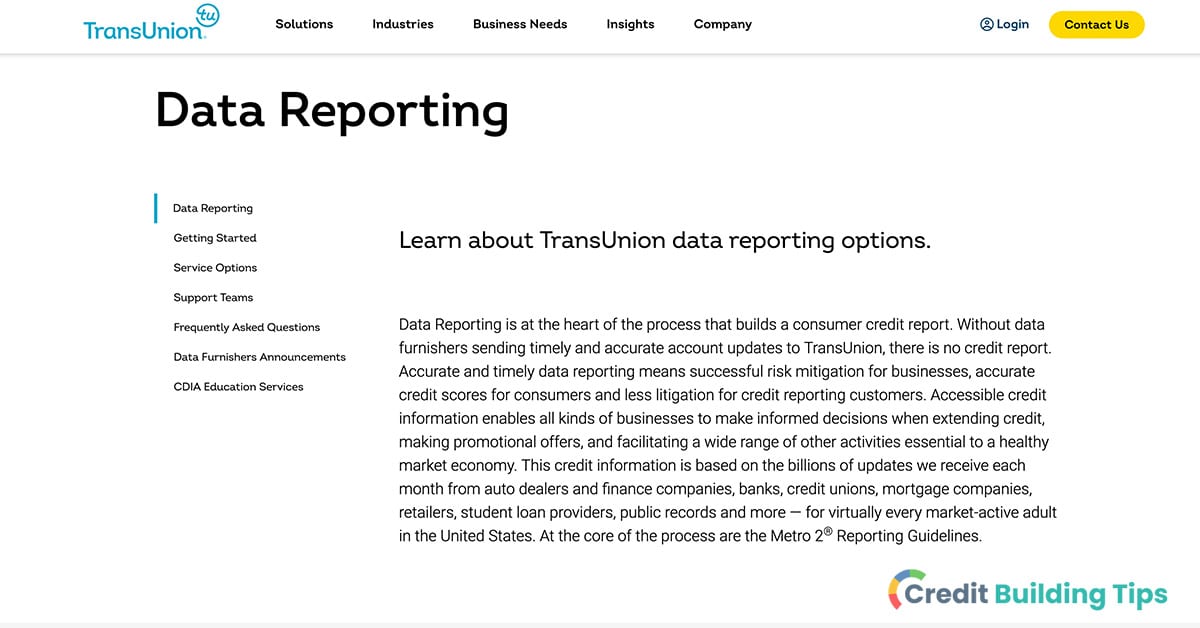
In order to become a data furnisher, you'll need to:
You can find more information about the specific requirements and application instructions for each credit bureau using the following links:
Once you have been approved as a data furnisher for your selected credit bureaus, you'll want to follow the following steps to report consumer information:
In order to maintain your ability to regularly report consumer information, you'll need to update the required software on a regular basis. Each credit bureau has its own standards that must be maintained in order to continue qualifying as an official data furnisher.
Here are a few additional tips for small businesses that want to report consumer information to the credit bureaus:
If you're not a large lender and aren't interested in becoming a data furnisher with one or more of the major credit bureaus, another option is to hire a collection agency.
Collection agencies are companies that will attempt to collect the debt that you are owed. This can be a reasonable route to take if you only have a few unpaid customer debts.
When choosing a collection agency, you'll want to consider the following:
The three major credit bureaus will not accept information from just any old consumer. If someone owes you money or has been repeatedly late in paying back a private, non-official loan, you're not going to have luck trying to add this information to their credit file.
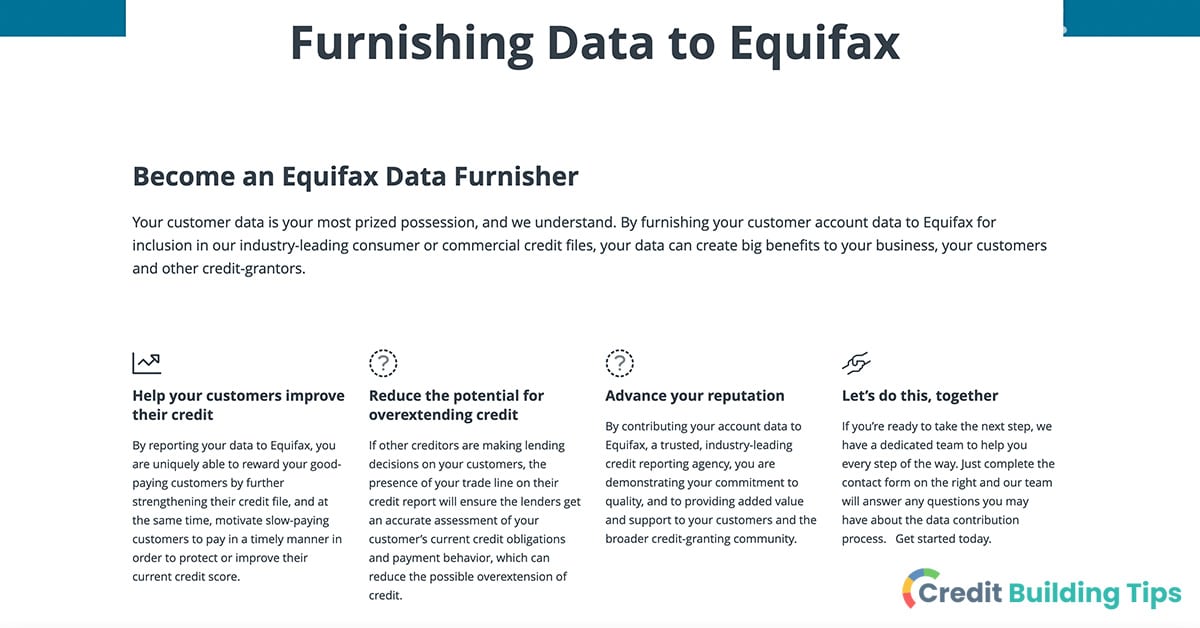
In order to contribute information to the credit bureaus, you have to become a data furnisher.
Businesses must apply and be accepted as data furnishers at each individual credit reporting agency (or whichever credit bureau they wish to work with) in order to report consumer information. This is not a free service and requires that businesses adhere to and abide by the Fair Credit Reporting Act and all other applicable federal laws.
However, this does mean that small businesses that allow customers to make purchases on credit or pay using installment plans can become data furnishers if they want to make monthly payment reports on their customers.
To become a data furnisher, businesses need to choose the credit bureaus they want to report to and then apply for membership in their business reporting programs. Companies that want to make reports to all three credit bureaus will need to be separately approved by each agency.
Creditors, lenders, and small business owners that offer lines of credit or installment payment plans aren't required to report to credit bureaus by law.
Even though this isn't a requirement, many businesses choose to report information about consumer accounts to the credit bureaus, such as:
It is with this type of information that credit reporting agencies are able to generate consumer credit reports and calculate credit scores.
Other major events will also often be reported to the credit bureaus such as charge-offs and account closures.
You might wonder why businesses and creditors would bother reporting to the credit bureaus, particularly because it is a service that costs them money. There are ultimately a number of reasons why companies might be motivated to become data furnishers, including:
Unfortunately, you are not able to directly report your own financial activity to the credit reporting agencies. Even if you have bills that you regularly pay on time that aren't showing up on your credit report, Equifax, TransUnion, and Experian won't accept information from an individual consumer in this way.
The reason for this is that you have to become a "data furnisher" in order to report information to the major credit bureaus, which is an officially recognized status.
If you own a small business that lets people pay in installments or carry lines of credit, though, it's possible for you to become a data furnisher and report information regarding account payment histories to credit reporting agencies.
There are a number of third-party services you can use as well as services offered by Experian and FICO to add positive information to your credit report. These services will usually require that you turn over private financial and account information.
That being said, there are a number of ways that you can indirectly self-report your own positive financial habits to Experian, Equifax, and TransUnion. There are a number of third-party services you can use, like RentTrack and PayYourRent, which will help you gain positive marks on your credit for on-time rent payments. You can also use Experian Boost to add utility bills and phone bills to your Experian credit report.
Another new service is UltraFICO, which lets you add the balances in your bank account into the mix when calculating your credit score. This can help lenders understand that you have responsibly managed your bank balance (not frequently overdrawing your account) and have cash in your account.
The credit reporting process isn't as straightforward as one might expect, and you can't just report someone to the credit bureau as a regular Joe. To report to the major credit bureaus, businesses and lenders must apply and be accepted as data furnishers.
Yes, landlords and property managers can report information about a tenant's rental payments to the credit bureaus by signing up for a rent reporting service.
All three credit reporting agencies will display rental payment information if they receive it. Of course, landlords and property managers need to be accepted as data furnishers in order to contribute this information.
If your landlord or property manager doesn't report your rent to the credit bureaus, there are a number of reporting services that one can sign up for to have rent contribute to your positive payment history. These include:
Individuals cannot report information to the credit bureaus. Only businesses that have applied and been accepted to the respective data-furnishing programs for credit reporting agencies can send information. There are strict requirements and rules that govern reporting, and data furnishers that don't send regular or accurate reports can have their agreement terminated.
Some credit reporting agencies also maintain credit reports for businesses in addition to consumers. These reports will include the credit accounts owned by a given business, their payment history, the amount owed, any collection activity, and more.
In order to report information regarding another business to the credit bureaus, a company needs to apply and pay for the business credit reporting service at the credit bureau they want to report to. This is a separate service from the consumer credit reporting service.
It's easy to never give much thought to the world of credit reporting until it's something that impacts you directly. After all, the activity of the major credit reporting bureaus can seem pretty out of reach, and understanding how and why our credit reports look as they do can feel cryptic, to say the least.
Having negative information on your own credit report can be pretty frustrating, but it's natural for your tune to change once someone owes you money for an unpaid debt. You might wonder if you can report them to the credit bureau and, if so, how.
The truth is individuals can't report to credit bureaus, only businesses. Even then, there is a cost to doing so and a number of requirements that must be met in order to qualify as a data furnisher. Another option on the table is hiring a collection agency, but you'll want to weigh out the pros and cons before going this route.
Whether or not you decide it's worth it to become a data furnisher, there is always value in better understanding the credit reporting process. As business owners and consumers, credit files and scores can have a major impact on our financial opportunities. When it comes to your credit, knowledge is power!
For more resources about building credit and understanding the world of credit reporting, make sure you check out our Credit Building Tips blog.
When you are unable to pay back a debt that you owe in full, you might choose to settle the account. While a "settled" status on your credit report will show that you don't owe a debt anymore, it is still considered a negative mark because it indicates that you did not pay back the full amount that you owed.
Having a settled account on your credit report can lower your credit score, and these accounts will usually stay on your report for seven years after the date of first delinquency.
 Though companies are not obligated to remove settled accounts from your credit report unless they are there in error, there are a few things you can try if you want to have it removed. Beyond filing a dispute for inaccuracies, you can try and strike a pay-for-delete agreement, send a goodwill letter, or send a hardship letter. If these options don't work, you can wait for the mark to fall off your report and work on building your credit in the meanwhile.
Though companies are not obligated to remove settled accounts from your credit report unless they are there in error, there are a few things you can try if you want to have it removed. Beyond filing a dispute for inaccuracies, you can try and strike a pay-for-delete agreement, send a goodwill letter, or send a hardship letter. If these options don't work, you can wait for the mark to fall off your report and work on building your credit in the meanwhile.Ultimately, settling debt is better than not paying it back at all, but it's still inferior to repaying the entire debt when it comes to your credit score and report.
If you have been behind on payments for a period of time, you might choose to settle the debt. This means that you and the creditor or debt collector come to an agreement where you pay less than the amount that you owe in order to satisfy the debt.

You might wonder why any lender or creditor would consider accepting an amount of money that isn't the full debt amount. After all, wouldn't all consumers try to settle their debt in order to save money?
The truth is, though, that trying to collect an unpaid debt is a costly endeavor for credit card companies and lenders. If they aren't able to coax you into paying what you owe, pursuing a lawsuit gets even more pricey. Additionally, there's always the chance that you could end up filing for bankruptcy if your finances are in really bad shape, which could leave the creditor in a position where they don't receive any of what they're owed.
From the consumer side of things, settling a debt can be harmful to one's credit. It's, therefore, not a useful strategy at all to hold off on making payments and hopes for a settlement down the road. Beyond that, a consumer might not receive a settlement they are happy with and could even end up getting sued by the lender or creditor. At the same time, settling debt is often a better option than not paying a debt back at all.
Though a settled account might sometimes be referred to as a closed account, as the account is no longer active, technically, settled accounts and closed accounts represent two different outcomes for a particular credit obligation.
Both settled and closed accounts will continue to appear on your credit report for a set period of time. Closed accounts typically have a more positive connotation compared to settled accounts, as the implication is that the consumer fulfilled their financial obligations as outlined in the original terms of the loan or line of credit.
If you're wondering what happens when you close a credit account when you still owe money, take a look at our article about closing a credit card with a balance.
When you settle an account, it will still show up on your credit report for seven years after the first date of delinquency. The original delinquency date is the day that it was first noted that a payment was late on the account.
Settled accounts usually stay on a credit report for seven years and tend to have a negative impact on credit. However, the impact of settled accounts on a consumer's credit score typically diminishes over time.
Since a settled account indicates that the creditor accepted an amount of money that was less than what you fully owed, it is considered a negative entry on your credit report. This means that it will usually reduce your credit score. That being said, the impact that a settled account has on your credit score will diminish over time.
Though settling an account is better than not paying at all, that doesn't mean it won't have a negative impact on your credit report. If you are unable to fully pay back what you owe, settling can be a reasonable option rather than letting the account go delinquent or default on it entirely.
Settling a debt can impact your credit in a few ways:
- Increasing your credit utilization ratio because the account will be closed
- Late payments often lead up to a settlement, and your payment history is a big part of your credit score and will show up on your credit report for years
- If the account is unpaid for an extended period of time, creditors can resort to a charge-off and send the account to a debt collector
- You can appear to be a riskier borrower to future potential lenders
- If you're saving up money to make a lump-sum payment, it could mean you miss more payments in the meanwhile and further damage your credit
You might think that since you are reducing your debt obligations, settling a debt should actually help your credit score. However, participating in a debt settlement plan will modify or negate the original credit agreement which can ding your score.
Additionally, if you apply for loans or credit in the future, you might find that lenders are reluctant to loan your money or extend lines of credit to you due to the presence of a settled account on your report.
At the same time, having a high account balance and late payments on your report has likely already hurt your score. It's possible that settling debt is your best path toward improving your credit score in the long run, so it can be worth accepting a temporarily lower credit score to help you achieve a sounder financial future.
Unless the information regarding a settled account on your credit report is inaccurate, you are technically not supposed to be able to remove them. Even though the lender is no longer trying to collect on the debt and you repaid part of the debt based on the settlement agreement, these settled accounts will stay on your credit report for seven years.
You might be wondering what your options are if the information is accurate, but you would still like it to be removed from your account.
While there is no guarantee that you'll be successful, three of your options include:
In the next section, we'll take a look at the different steps you'll need to take if you choose to pursue one of these options or if you need to dispute a settled account that appears in error.
If a settled account appears on your credit report and the information is accurate, there is no guarantee that you'll be able to have them removed. If it is an error, you can dispute the information with the credit bureaus and the lender or debt collector.
Even if the account isn't on your report inaccurately, there are a few things you can try when it comes to having the tradeline removed.
To make sure you cover all of your bases, it's usually best to contact both the credit reporting company as well as the credit card company or lender that provided the information when you need to dispute an error.
After you identify an inaccuracy on your credit report, you will want to contact all of the credit bureaus that are reporting the error. You can do this by using their online dispute center portals, calling them, or sending a letter through the mail. You can find the contact info for the credit bureaus here or on the Consumer Financial Protection Bureau site.
When contacting the company that provided the incorrect information, you can either call them on the phone or send them a letter. The CFPB provides both a template letter and instructions for sending a letter to the furnisher when disputing an inaccuracy.
You can sometimes work out an agreement with the lender or creditor where, in exchange for paying off all or part of the debt, they agree to remove specific negative information from your credit report.
This is known as a pay-for-delete agreement. Though companies have no obligation to participate in this type of agreement, it doesn't hurt to try.
One important note is that you should always receive a written explanation of the agreement before sending your payment, including the fact that they are agreeing to delete specific information from your credit report. Debt collectors, lenders, and credit card companies alike are known for saying just about anything in order to encourage payment, and you should not trust that a verbal agreement will be upheld.
Note: When you negotiate a settlement for a student loan debt, either private or federal, you typically won't be able to receive an agreement from lenders to delete negative information from your credit report.
Even if your credit report is displaying accurate information about your debt settlement, you can try to send a goodwill letter to the creditor asking them to remove the negative information. Some borrowers have found success in this way, though it's worth noting that lenders are not obligated to help you out.
You will generally have the best chance of success with a goodwill letter if you have otherwise proven yourself to be a responsible borrower from the specific lender.
If you have experienced a specific hardship that has led to you falling behind on payments and in need of a settlement, you might consider sending a hardship letter. In a hardship letter, you will want to state your desired request for a modification to the agreement, including asking that they will not remove that "settled" status from your credit report.
Circumstances that typically qualify as hardships include:
Though lenders might be willing to show leniency when you can prove that you've experienced hardship, they are ultimately going to be primarily interested in recouping as much of their loan as they can. For this reason, it's important to clearly state why the modifications you're asking for will help them get some of their money back.
If you are unable to have the settled account removed from your credit report, your last option is to simply wait it out and work on building your credit in the meanwhile.
Though it can be discouraging to have a negative mark on your credit report, a settled account will usually only last on your report for seven years. In the meanwhile, you can take steps to improve your credit to lessen the impact that this derogatory mark has. The other good news is that the negative impact of a settled account and any related late payments will lessen over time.
Before I sign off, let's take a look at some of the most commonly asked questions about debt settlement and how it impacts your credit.
Paying off a debt in full is always a better option than settling a debt. That being said, settling debt is still better than choosing not to pay at all.
The benefits of settling a debt are as follows:
There are also some risks that you will want to consider when it comes to settling a debt, including:
Paying a debt in full is always better than settling. When you pay off the total amount of money that you owe, it will read as "paid in full" on your credit report. This indicates to future lenders that you have fulfilled the original terms of your agreement with the lender by paying the full amount due.

When accounts are closed in good standing, they will stay on your credit report for up to ten years. The positive payment history that you have on these accounts will continue to keep your credit score strong. Though getting out of debt can feel overwhelming, you might find that using the debt avalanche method, the debt snowball method, or applying for a debt consolidation loan or balance transfer credit card can help you start digging your way out.
According to the National Foundation for Credit Counseling, a consumer's credit score can be lowered by 100 points or more by engaging in debt settlement practices.
Though this might be shocking and unwelcome news, it's worth noting that the exact impact debt settlement will have on your credit score will vary from person to person. The amount of debt owed on the account can also influence the impact.
Usually, a person with a higher credit score will see a greater impact from debt settlement than a person that already has a lot of negative marks on their credit report. At the end of the day, though debt settlement isn't as ideal as paying an account in full, it is still better for your credit than not paying back the debt at all.
One thing you want to consider is that there are a number of actions that can be taken that will actually restart the debt statute of limitations. The statute of limitations is the amount of time in which a creditor or debt collector can take legal action against you to try and recoup an unpaid debt. Each state has its own laws for the length of the debt statute of limitations.
Though debt collectors and creditors can still try and collect on old debts after the statute of limitations has passed, an expired statute of limitations can serve as a defense in court if sued for a past-debt.
Some of the things that can restart the clock on the debt statute of limitations include:
For this reason, it's always important to be very careful if you're communicating with a debt collector or a creditor about a debt. They can be pretty sneaky and might intentionally try and get you to say something or take an action that will restart the clock on the statute of limitations.
Having a settled account on your credit report isn't ideal-- it can signify to lenders that you didn't repay the full amount of a debt you owed and otherwise hurt your credit score. Though there is no guarantee that you will be able to remove accurate info from your credit report, you can try to have a settled account removed by:
Otherwise, you can wait for the mark to fall off your credit and work to build your credit in the meanwhile. If the account appears in error, you'll want to dispute it both with the credit bureaus and the companies that are reporting the incorrect information.
The notion of credit scores and credit reports might seem fairly abstract, but the reality is that they can have a very real impact on your life. When you have strong credit, it can make it easier to get approved for credit and loans and give you access to lower interest rates and loan terms. Beyond that, your credit can even impact your ability to rent an apartment, your employment opportunities, and your insurance rates.
For these reasons and more, it's well worth the time and effort to clean up your credit report and work on increasing your score. If you're ready to open yourself to greater financial opportunities in the future, make sure you check out our Credit Building Tips blog for tons of resources on improving your credit.
Having a great credit score can allow you to get great deals on credit cards, loans, cell phone plans, apartments, insurance premiums, and more.
If you visit Credit Karma and Experian to find out your credit scores, though, you'll likely find that the two scores you find aren't the same. Why is this?
 Experian is one of the three major credit reporting bureaus that compile information about your credit into reports that are used to calculate your credit scores. Credit Karma, on the other hand, isn't a credit bureau and uses information from Equifax and TransUnion to provide free credit scores and credit reports.
Experian is one of the three major credit reporting bureaus that compile information about your credit into reports that are used to calculate your credit scores. Credit Karma, on the other hand, isn't a credit bureau and uses information from Equifax and TransUnion to provide free credit scores and credit reports.While Experian will offer you your FICO 8 score, Credit Karma gives you access to your score based on the VantageScore 3.0 scoring model. The combination of using different credit scoring models and drawing from reports from different bureaus can result in Credit Karma and Experian giving you different credit scores.
Two big names you'll likely come across if you want to check your credit score or report are Credit Karma and Experian.
Credit Karma isn't a credit reporting bureau, but is instead an online service that you can join as a member. Once you're a member, you can receive credit scores and reports along with financial advice and resources. Signing up for a membership with Credit Karma is free.
Here is some basic information about the difference between these two companies:
Credit Karma is an online financial platform and not a credit reporting agency. Creditors don't report to Credit Karma, but, instead, Credit Karma makes credit information easily available to consumers.
You can also access a number of educational and financial tools through this site in order to try and boost your credit scores. This was a privately held company until early 2020 when it was purchased by Intuit.
As a member, you can access your credit reports and scores, which you can save as PDFs or print from their online platform. You can also get a more complete financial picture by registering credit card accounts and bank card accounts. They also have mobile apps for both Android and iPhones.
You can see your Vantage 3.0 scores from both Equifax and TransUnion when you use Credit Karma.
Vantage is a credit scoring model that results from a collaboration between Equifax, TransUnion, and Experian. Your Vantage 3.0 score will be updated weekly as a member, and you can also sign up for credit monitoring alerts that will let you know if there's a change in your score.
There are a number of other credit monitoring services that you can sign up for, which also typically offer credit monitoring alerts as well as identity protection tools and identity theft monitoring tools.
Experian is one of the three major credit bureaus in the United States. Monthly data is provided for each account, including the payment amounts, minimum payment due, and account balances. Using their reports, you can see how much longer your account will show up on your credit file and also detail the monthly balance history for each of your accounts.
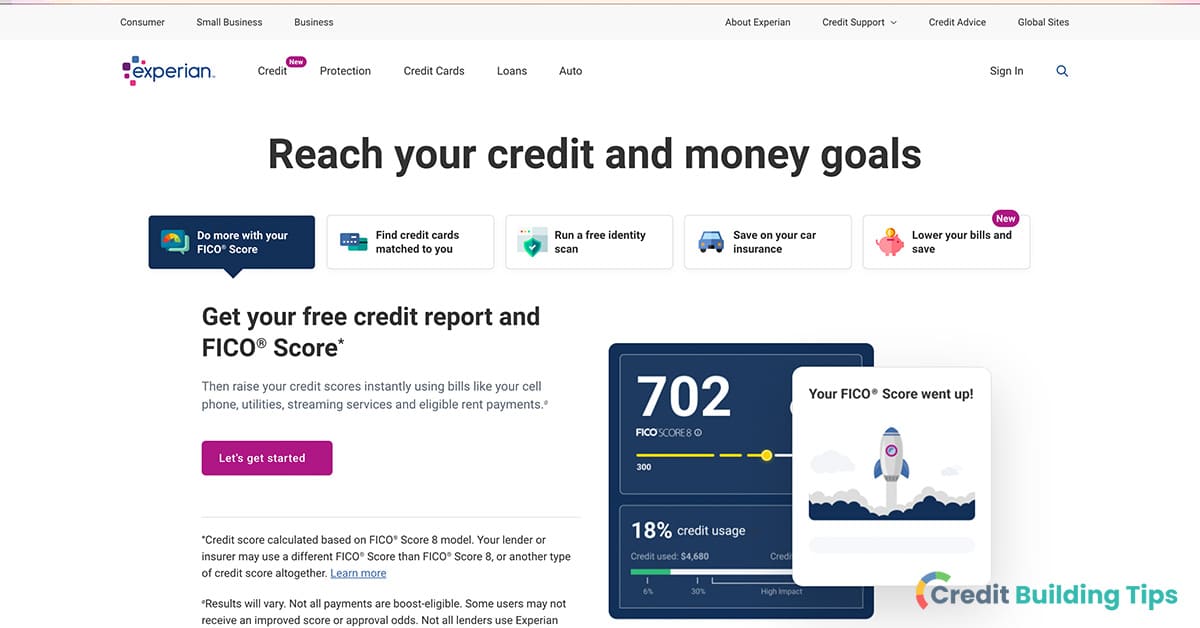
Experian is more commonly used for credit reporting by companies than both Equifax and TransUnion. This means that any particular debt or account you have is more likely to show up on Experian reports if they are going to show up on any of your reports.
Operating in 30 countries with 27,000 employees, Experian is a huge company. There are four main business lines: marketing services, credit services, consumer services, and decision analytics.
If you have questions about your credit, you can use the Experian credit hotline in order to talk to an actual person that will help walk you through your report. There are lots of financial resources on their site, including videos and articles, much like Credit Karma.
While Credit Karma offers your Vantage 3.0 credit score, Experian provides a FICO score 8. While there are a number of similarities between the VantageScore 3.0 and FICO 8, they won't produce the exact same number when calculating your credit score.
Though VantageScore and FICO used to use different score ranges, they now both adopt a range from 300 to 850. Higher scores are always better, and both scores are designed to help predict the likelihood that a consumer will repay their credit obligations.
Each of these categories is waited differently, though, meaning that your scores likely won't be exactly the same on both services.
If you are looking to sign up for a service that lets you keep track of your credit scores and reports, Credit Karma and Experian are both popular options.
With Credit Karma, you can sign up for a free membership where you can receive free credit reports, free credit scores, free alerts, and free credit monitoring. When you sign up for the free trial, you don't have to register a credit card.
Credit Karma will also recommend credit cards that you are likely to qualify for, and that could help save you money. The orientation of the site is to help you improve your credit scores, so they'll provide a personalized grade for each of the credit factors and offer suggestions for how you can improve your rating.
There are a number of free options at Experian as well as some paid service packages. For example, you can pay to receive reports from all three major credit bureaus.
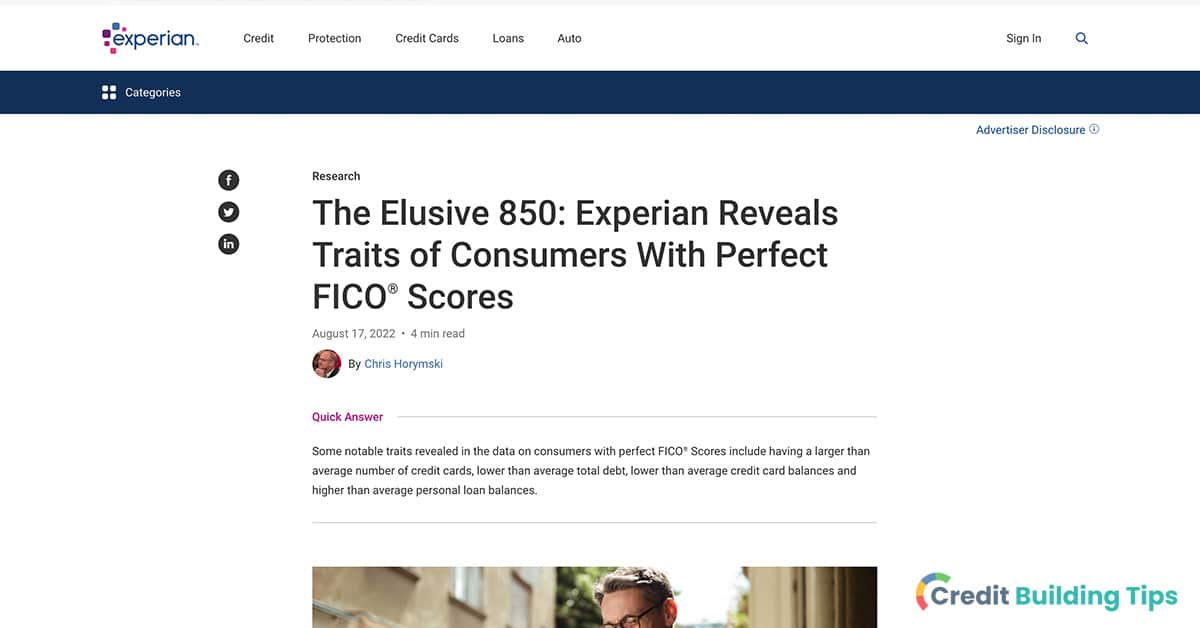
Experian's free service, called Experian CreditWorks Basic, offers a number of services for free, including:
Experian CreditWorks Premium comes with a seven-day free trial and then costs $24.99 a month.
Upgrading will give you access to the following features:
There are additional service bundles you can purchase to gain access to even more information and protection. One free service that might interest you is Experian Boost, which lets you add positive payment history to your Experian credit reports from utility and telecom accounts. This can help boost your credit score instantly, though it requires that you hand over some personal financial information.
There are a number of reasons why your Credit Karma score is going to be different than your Experian score.
Credit Karma and Experian offer different scores because they are pulling from different credit reporting bureaus-- Credit Karma provides your scores from Equifax and TransUnion, while Experian provides your Experian credit score.
One reason is that Credit Karma will show you your VantageScore from Equifax and TransUnion, while the free version of Experian will show you your FICO score from your Experian credit report.
Additionally, not all of your creditors and lenders will report to all of the credit bureaus, which can create differences between your reports and your scores.
Every company is going to have its own system and preferences when it comes to pulling credit reports and scores.
In general, though, you'll want to check your FICO Score if you're planning on applying for credit. There's a good chance that lenders will be using this scoring model in order to figure out whether you are likely to pay back a debt you take out.
There are also differences between the various versions of FICO score models. For example, different industries will have standards in regard to which version they use.
If you are planning on buying a house, you'll want to check your FICO Scores 2, 4, and 5, as these are common versions used by mortgage lenders.
Are your credit reports not looking quite as good as you had hoped? Cleaning up your credit report can be well worth the trouble. Make sure you check out our guides to removing collections, hard inquiries, dispute comments, charge-offs, evictions, and late payments if you are ready to improve your credit.
Chances are your credit score will vary depending on which credit bureau is being used to calculate your score. Though people regularly talk about their "credit score," it's usually more accurate to say that each person has multiple "credit scores."
There are a variety of factors that can explain the differences between credit scores from different credit bureaus, including:
Since Credit Karma is an online financial platform but not a credit reporting bureau, you might wonder if the score they offer is accurate.
Credit Karma doesn't collect information from creditors. Instead, they use your credit reports from Equifax and TransUnion to offer scores and reports. The credit calculating model they use is VantageScore, rather than FICO.
The information on Credit Karma should be accurate, but the reality is that they don't share the most commonly used credit scoring model. FICO is much better known than VantageScore and is most widely used by lenders. For this reason, if you're just going to focus on one credit score, it might make sense to work specifically on your FICO score rather than your VantageScore.
Though it can be frustrating to realize that you have two different scores from Experian and Credit Karma, having a healthy credit profile should ensure that your scores are in good shape no matter which credit scoring model is being used or which credit report supplies the information that generates your credit score.
Building credit can take time, but it's well worth the investment of time. When you improve your credit, it can save you tens of thousands of dollars over your lifetime when it comes to the terms and rates you receive for loans, credit cards, insurance premiums, and more.
Are you searching for more resources to help you build your credit and boost your credit scores? If so, make sure you check out our Credit Building Tips blog.
Credit card issuers (and other lenders, too,) are legally allowed to ask for contact information from the credit bureaus for individuals that meet certain credit criteria.
If you're receiving loads of credit card offers in the mail, the good news is that it probably means you have good or excellent credit and that credit card companies see you as a low-risk borrower. On the other hand, if you aren't shopping for a new card, it can leave you with a bunch of unsolicited mail that contains personal information.
 Since credit card offers often include personal information as well as details necessary for opening a new credit card, you always want to shred them rather than throw them in the recycling bin.
Since credit card offers often include personal information as well as details necessary for opening a new credit card, you always want to shred them rather than throw them in the recycling bin.If you are frustrated by the fact that you should shred credit card offers rather than just tossing them, you'll be glad to know that you can opt out of receiving pre-screened firm offers from credit card companies. In this article, we'll go over everything you need to know about discarding these offers and even opting out of ever receiving them in the first place.
Yes, you absolutely should shred credit card offers. Even though you might expect that offers you didn't ask for wouldn't contain any identifying information, this simply isn't the case.

Not only will your name and address be on these offers, but there can also be barcodes that contain additional identifying information. Beyond that, if someone other than you gets a hold of your credit card offer, they could potentially use the information to open a credit card in your name.
If the envelope has your address printed on it, you'll want to shred it as well.
Credit card offers often contain personal information. They will almost always have your name and address on them, but they can also include information like:
Even if there aren't financial account numbers or your Social Security number listed in a credit card offer, you still wouldn't want a bad actor to get their hands on the personal data contained in these letters. Identity thieves and scammers can, unfortunately, do a lot with a small amount of information, so you want to avoid throwing your personal info simply being thrown in the trash.
If you feel like you're getting tons of credit card offers every week, you're not alone. On the one hand, this can be pretty annoying. In good news, though, it likely means that you have a good to excellent credit score.
They request information about potential borrowers that fit certain criteria from the credit bureaus. They are legally allowed to do this via the FCRA, but you also have the right to opt out of having your information included on these lists.
There are two ways that credit card companies can get your personal information:
The credit card offers you receive in the mail or through email are usually "prescreens."
Credit card companies will send prescreened offers to people whose credit histories meet their specific criteria. They receive this information from credit reporting companies.
This means that the companies have already deemed you worthy of receiving a specific offer due to your credit history. However, you'll still have to actually apply for the card if you decide it's something you want to pursue.
When you receive multiple credit card offers in the mail, you might be worried that these companies are constantly running credit checks on you in a way that will impact your credit score.
The reason for this is that the prescreening process only involves a soft pull of your credit rather than a hard pull.
If you look at your credit report and you see soft inquiries from credit card prescreening, don't worry. Only you can see these soft inquiries-- potential lenders or other parties that pull your credit report won't be able to see them. Soft pulls are simply listed on the credit report you can view so that you know the names of companies that are obtaining your information.
Did you pull your credit report and it could use some cleaning up? Check out our guides to removing 30 day late payments, evictions, hard inquiries, and collections from your credit report.
If there's mail you're planning on throwing away, it's honestly safest to shred all of it. Of course, tax-related information or bank statements that you are tossing out should definitely be shredded. Still, even junk mail can give identity thieves more information than you want them to know about you.
Even the envelope a letter came in should be shredded if it has an address label on it. It's really best to actually shred your mail-- ripping it in half a few times isn't as effective as you might hope. If an identity thief wants to get their hands on your information, an envelope torn in half won't be enough to stop them.
Here's another tip to help reduce the risk of identity theft:
With information like your name, prescription number, and doctor's name on them, it's possible that a bad actor could use the info to steal your identity, or they could refill the prescription for themselves.
The FTC recommends that you hold onto medical bills, pay stubs, and bank statements for a year before you shred or destroy them.
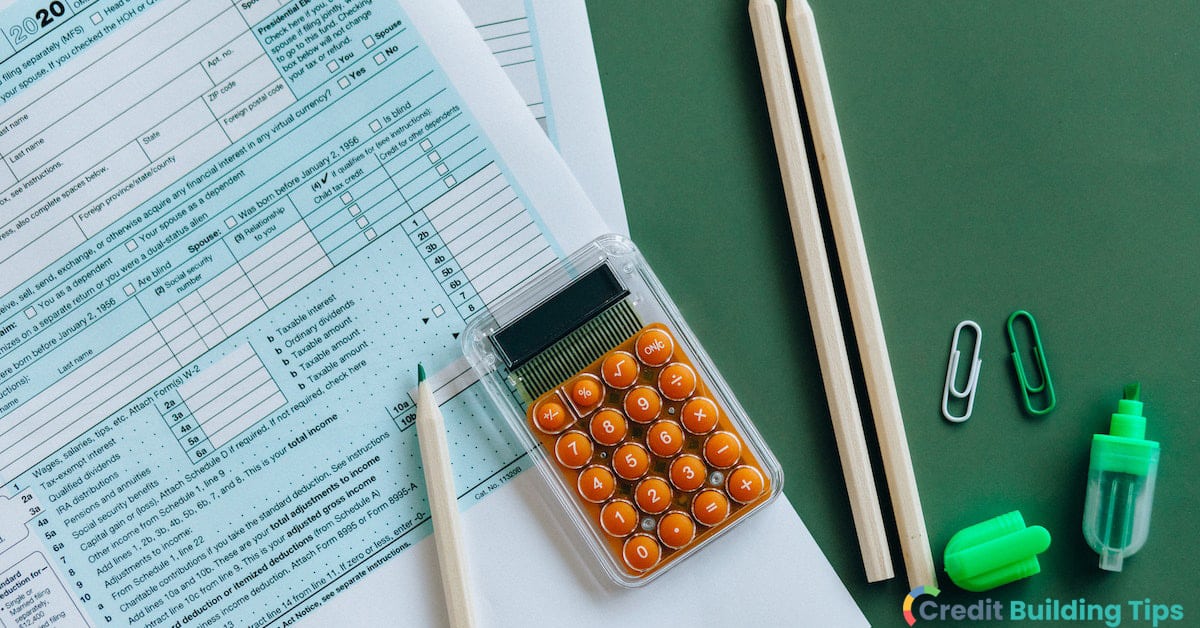
You'll always want to hold onto your tax records, too, just in case.
Further down in the article, we go into detail about how you can opt out of pre-screened credit card offers. However, you can also reduce the amount of junk mail you receive by registering at the Direct Marketing Association's (DMA) consumer website. This allows you to choose what promotional mail you want to get. This registration lasts for ten years, and there is a $4 processing fee.
You can also send your name and address along with your signature and $5 processing fee (in the form of a money order or check payable to the Association of National Advertisers or ANA) to the following address:
DMAchoice
Consumer Preferences
P.O. Box 900
Cos Cob, CT 06807
Though you might still receive some promotional mail, registering with the DMA should reduce the amount of unsolicited mail you receive.
You might think that most identity theft and fraud occur online these days, but there are still people that will search through trash bins of unsuspecting homeowners and renters.
Identity thieves are usually looking for any of the following information:
Even if one document doesn't have all of this information (in fact, it's unlikely that one document would have all of this information,) a thief could piece together a terrifying amount of your personal info by rooting through your trash from different pieces of mail and documents.
Identity thieves can do all kinds of bad things with your info, including:
This isn't even an exhaustive list of how identity thieves and fraudsters can use your personal information. As you can see, if any of these things occurred, it would be a massive problem for you, so it's simply best to just shred any mail you aren't holding on to.
If you've been throwing credit card offers (and other mail with personal identifying information) in the trash or recycling bin for years, there are a few steps you can take to help protect yourself.
In general, it's a good idea to regularly check your credit report to make sure that there isn't any inaccurate or suspicious information on there. Additionally, keep a close eye on your bank accounts and credit card accounts and report any suspicious activity right away.
Signs of identity theft include:
If you find information that points to potential identity theft, you can:
If you left your trash by the curb, it isn't technically illegal for someone to go through it. If they're trespassing on your property to go through your trash, though, it's another story.
Choosing digital bank statements and bills (i.e., going "paperless") is a good way to reduce the occurrence of someone finding your information on physical pieces of mail. You might also consider investing in a locked mailbox, installing outdoor security cameras, and keeping your trash bins on your property as close to the time they'll be picked up as possible.
For more information about the ins and outs of owning a credit card, check out our guides to credit card nicknames, prepaid credit cards, and getting a new credit card before buying a house.
Getting tons of credit card offers when you simply don't need them can get pretty annoying, particularly when you take the step of shredding each of them to protect your private information.
To opt out of prescreened credit card offers, you can submit a request online at OptOutPrescreen.com or call 888-5-OPTOUT (888-567-8688).
Luckily, you have the right to opt out of prescreened offers thanks to the Fair Credit Reporting Act. This is true for both offers you receive through regular mail as well as email.
There are two different ways you can do this:
You will only need to submit your request one time in order to have your name and address removed from the prescreening lists of Experian, Equifax, and TransUnion.
It's possible that you will still receive offers for a while because there might already be pending offers in a lender or creditor's delivery stream.
If you start shopping around for credit cards and decide you want to receive offers again, you can call the same number to opt back in. You'll ideally want to do this a few months before you plan to apply.
When you call or use the online platform to opt out of credit card offers, you are only stating that you want to opt out for a period of five years. If you know that you don't want to receive these offers ever again, though, you'll have to send a letter through the U.S. mail.
To opt out entirely from credit card offers, you'll need to complete the Notice of Election to Opt Out form and send it to the following address:
Opt-Out Department
P.O. Box 530200
Atlanta, GA 30353
You can find this form by going to the OptOutPrescreen.com site and selecting "Permanent Opt-Out by Mail." The other options are "Opt-In" (if you want your name to be eligible for inclusion on "lists used for Firm Offers of credit or insurance") or "Electronic Opt-Out for 5 years."
When you receive lots of credit card offers in the mail, it generally means that you have good or excellent credit. While this is good news, it can be pretty annoying to get so many unsolicited letters, particularly when they contain personal information that identity thieves and fraudsters could use.
If you know that you aren't going to be looking to take advantage of any prescreened credit card offers in the near future, you can opt out of receiving them for a five-year period or permanently.
While firm offers from credit card companies can get on your nerves when you don't want a new card, they can actually be pretty useful when you're shopping around for one.
If you're hoping to get a new credit card soon, it's never a bad idea to take a look at your credit report and even do some work to boost your credit score. For more resources about improving your credit, make sure you check out our Credit Building Tips blog.
When you pull your credit report, seeing something you don't understand or recognize is always a bit disconcerting. After all, this is supposed to be a report of all of your credit activity, so you would expect everything on your report to be intelligible.
If you're looking at your credit report and you see a term or account that doesn't make sense, you might be worried that something has gone wrong. One common question we receive is what 'updated tradeline' means on your credit report and whether this is a good or a bad thing.
 "Tradeline" is simply the term used in the credit industry to describe an account on a credit report. When your report says 'updated tradeline,' it simply indicates that some sort of change has occurred that led to one or more of the credit bureaus to correct or update information on your report.
"Tradeline" is simply the term used in the credit industry to describe an account on a credit report. When your report says 'updated tradeline,' it simply indicates that some sort of change has occurred that led to one or more of the credit bureaus to correct or update information on your report.In many cases, an updated tradeline shouldn't be cause for concern. However, it's always worth taking a closer look to make sure that the activity being reported didn't result from identity theft or fraud.
When your credit report says 'updated tradeline,' it simply means that some sort of change has occurred with one of your accounts, and one or more of the credit bureaus is therefore updating the information.
A tradeline is the term used in the credit industry to refer to the accounts that appear on your credit report. Examples of tradelines include personal loans, credit card accounts, and mortgages.
There are several different possible reasons that you could see a message indicating an updated tradeline on your report, including:
There are a number of ways that an updated tradeline can influence your credit score. The nature of the update is going to be important when considering how it might change your score.

Before we look at some potential ways that updated tradelines can change your credit scores, it's important to remember that several factors go into calculating your scores. Depending on your particular credit history and profile, in addition to the nature of the updated information, an update to one of your tradelines could have a very noticeable effect on your credit, or it could have little to no effect.
Here are some examples of how an updated tradeline could impact your score depending on the nature of the updated information:
Tradeline alerts are notifications that communicate updates or changes to your credit report's tradelines. You can use this tool to proactively monitor your credit report and accounts.
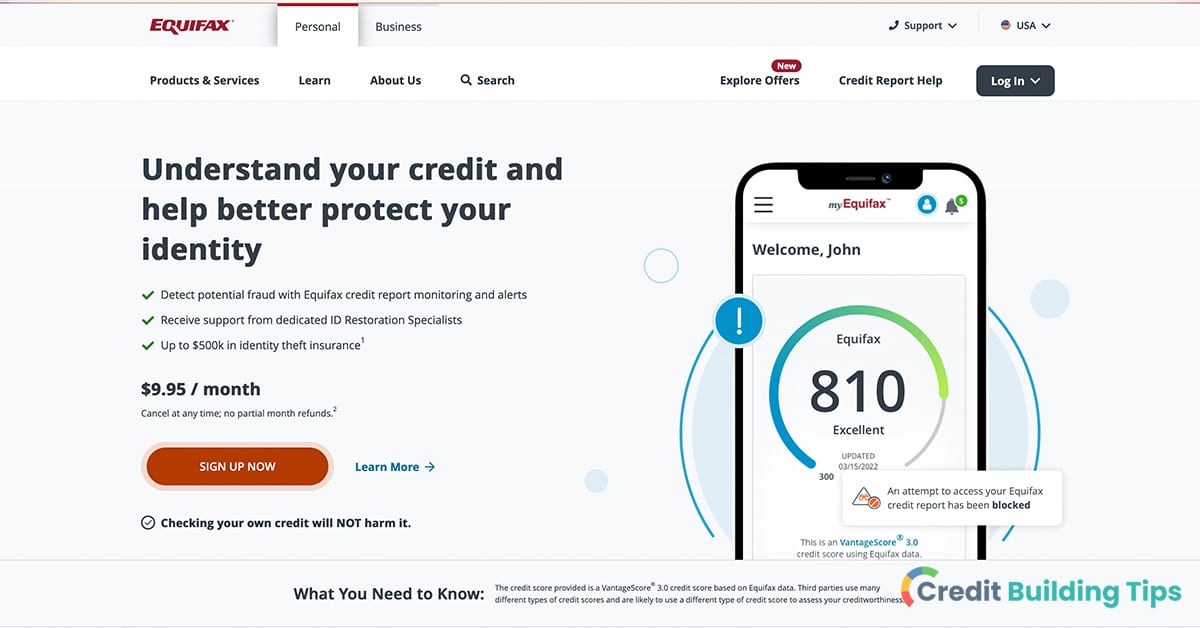
You can set up tradeline alerts through the credit bureaus or through credit monitoring services. Anytime there is a change on one of your tradelines, such as a payment update, a new account opening, delinquency, or a change in your credit limit, you can receive an alert through one of the following:
Staying vigilant and aware of any major changes in your credit file is important, and signing up for tradeline alerts can help you do just that. When you know that something significant has changed on your credit card, you can detect potentially fraudulent activities, promptly address any inaccuracies, and take any necessary steps to manage your credit responsibly.
Each credit bureau has its own process and format for updating credit report tradelines. Therefore, you can expect there to be some variation in the information provided by each credit bureau. In general, though, updated tradelines will include the following details:
Depending on the reporting practices of the creditor or lender, the frequency of tradeline updates can vary quite a bit.
Here are some general points regarding tradeline update timing to help you get a sense of when you should expect a tradeline will be updated:
There are a number of reasons a new tradeline might appear on your credit report. The most common explanations for a new tradeline showing up are:
Considering the potential for identity theft and credit fraud, it's vital that you pay attention to new tradeline alerts or at least regularly check your credit report.
Understanding the details of your credit report can be tricky, so let's take a minute to go over some basic information about tradelines and updated tradelines that appear on your credit report.
Every account that you own appears on your credit report as a single credit tradeline. This is true regardless of whether the account is open or closed, your payment is current or past due, or you are the sole owner or a joint owner of an account.
That being said, there are three different categories that tradelines can fall into.
Examples of revolving accounts include lines of credit or credit cards.
Revolving accounts involve being alloted a credit line that can be accessed in an ongoing manner, which payments minus interest and feed charged opening up credit to the account holder. Examples of revolving accounts credit cards, home equity lines of credit (HELOCs), and lines of credit.
Since the available credit, balance, and payment due are all regularly changing as you make payments and purchases, these are known as revolving accounts.
Examples of installment loans include auto loans, mortgages, student loans, and personal loans.
Rather than having a credit limit that you can continue to borrow from and pay back as with revolving credit accounts, installment loans involve borrowing a fixed amount of money and repaying the debt on fixed terms.
Installment loans are loans where a fixed amount of money is borrowed that is paid back according to a fixed schedule and terms. Examples include personal loans, student loans, auto loans, and mortgages.
While many experts lump mortgages in with other installment loans, some prefer to classify home loans as their own separate, fourth category of tradeline.
Open accounts are not common for individuals and are instead more often used by businesses.
Also known as an account payable by the bearer, open accounts are mostly used in the business world and aren't normally going to show up on an individual's credit report.
These involve an account that is payable in full when the buyer receives merchandise or a specific item of value.
To some extent, how much weight a credit tradeline carries depends on the type of tradeline.
For example:
It's also worth noting that your credit limit and utilization will be included in a credit card tradeline, while this information won't be present for an auto loan tradeline.
When you see a note or receive a notification that says a tradeline has been updated, it simply means that the info on your credit report in relation to a specific account has been altered to reflect the most recent accurate details.
At the same time, there is always the possibility that the credit bureau or your creditor has made a mistake and is reporting inaccurate information. Beyond that, there's also the possibility that someone else has gotten a hold of your personal information, and activity on your accounts is indicative of identity theft or fraudulent behavior.
For this reason, it's very important to regularly check your credit report and keep an eye out for errors or anything that seems off. You can take a look at our guides to removing 30-day late payments, evictions, hard inquiries, and collections from your credit report to help you in your quest to clean up your credit report.
Building credit is something that is best tackled slowly over time, but there are some ways to quickly boost your credit and improve your chances of being approved for a loan, credit card, or another new tradeline. For more resources about cleaning up your credit report and increasing your credit score, check out our Credit Building Tips blog.
Honda is well known for producing reliable car that will keep you safe on the road. There are lots of people that swear by Honda vehicles as offering the best bang for your buck, as they put out a wide range of affordable, long-lasting models.
That being said, even the cheapest new Honda (the LX trim of the Honda Odyssey starts at a little over $33k) likely costs more than you're going to want to pay out of pocket.
 If you're planning on financing a Honda through Honda Financial Services, you'll likely need a credit score of at least 610. However, criteria for financing can vary by the Honda dealership, and there are also other financing options available for purchasing a new Honda.
If you're planning on financing a Honda through Honda Financial Services, you'll likely need a credit score of at least 610. However, criteria for financing can vary by the Honda dealership, and there are also other financing options available for purchasing a new Honda.Let's take a look at what you need to know about purchasing a Honda with financing, and how your credit score can impact your ability to qualify for good rates and terms.
There is no set minimum credit score for purchasing a Honda using financing. Even if you are seeking financing through a Honda dealership, the minimum required credit score can vary from one dealership to the next.

That being said, to buy a Honda through dealer financing, you will likely need a credit score of at least 610.
The general rule of thumb is that you will need a credit score of at least 600 in order to qualify for a traditional car loan. To receive financing through a Honda dealership, you will most likely need a score of at least 610.
Every lender has its own criteria through which it determines whether or not to extend an auto loan to a potential borrower. That being said, a credit score of 600 is usually considered the cut-off point for getting a traditional car loan.
If your credit is less than ideal, it doesn't mean that you're completely out of luck. What it does mean, though, is that you will probably need to look for a car loan specifically for people with bad credit, which will mean that your rates and terms aren't nearly as favorable.
Are you wondering what credit score you need to purchase a brand new Mercedes-Benz with financing? Check out our guide to getting a Mercedes car loan to learn more.
Before we go further into how to finance a Honda, let's talk a little bit about the difference between buying a Honda with financing and leasing one. Depending on your particular circumstances and preferences, you might find one of these options more appealing than the other.
If you want to purchase a Honda using their financing program, you can go online to get pre-approved before heading to the dealership. It's usually not a bad idea to shop around a bit when it comes to car loans, though-- it's possible that your local credit union or another lender will be able to offer you a better deal. Even if you don't intend to go through with either of these loans, you can have them in hand when you go to the dealership and use them as leverage to get a better deal.

Honda dealerships will sometimes offer 0% APR promotional financing offers, so you might want to search around for local dealerships and see if any of them have particularly good offers. Their loans typically range in length from 2 to 6 years.
Are you wondering how auto financing shows up on your credit report? You can learn more in our guide to Capital One Auto Financing.
You can often lease a Honda with a small down payment or even no down payment at all. Just like with purchase financing, each dealership is going to have its own offerings.
Some typical lease terms you might find at a Honda dealership include the following:
What happens when your lease is up, you ask?
Honda Financial Services makes it fairly easy to apply for financing. You can use their online platform to apply for pre-approval as well as to check your approval status.
Getting pre-approved before you head to the dealership can help you save time and also give you a better sense of the price range of the vehicle you should be looking for.
When you apply for preapproval, you'll want to have the following information close at hand:
You will usually receive your pre-approval decision within one business day via email.
Once you have this in hand, you can head to the dealership, which will help you with the next steps in acquiring financing. Of course, you don't have to use Honda Financial Services to finance a vehicle from a Honda dealership, and it can be worth shopping around for a better deal. More favorable preapproval offers might mean that Honda will offer you better rates and terms, or it might mean that it's worth taking some extra steps to use financing from elsewhere to purchase your new car.
Some sources state that Honda Financial Services only uses the Equifax credit bureau. In contrast, others claim they will pull your credit from all three credit reporting agencies when you apply for financing.
If you are planning to apply for a car loan from Honda Financial Services, it's best to take a look at all three of your credit reports to make sure that there aren't any inaccuracies or errors. Doing so in advance can give you ample time to dispute any mistakes before the lender pulls your report.
Are you trying to clean up your credit report before applying for a car loan? Take a look at our guides to removing 30 day late payments, evictions, hard inquiries, and collections from your credit report.
Again, every Honda dealership is going to be a bit different when it comes to their criteria for offering financing. In general, though, here are some things you'll want to keep in mind when it comes to the pros and cons of using Honda Financial Services.
Some of the advantages of using Honda Financial Services include:
Some of the disadvantages of using Honda Financial Services include:
Unfortunately, Honda doesn't disclose a great deal of information about the specific eligibility criteria for receiving an auto loan. That being said, the dealership might be able to help arrange financing for you through a different lender if your score is on the lower side. Of course, the lower your credit score is, the less likely you'll be to receive great rates and terms.
There are a number of other things you'll want to keep in mind when you're shopping around for a new Honda, including:
If you want to buy a Honda, but your credit is less than perfect, you can either deal with the fact that the loan is going to cost more, or you can work to build your credit first before applying.
Are you ready to start improving your credit? As your credit score climbs and your credit report gets cleaned up, you'll find that the financial opportunities available to you significantly expand.
Wondering what you can do to make sure you come off as a responsible borrower to any potential lenders or creditors? Make sure you check out our Credit Building Tips blog more resources. If you're wondering where you should get started, take a look at our guides to removing derogatory marks from your credit report, building credit with no credit history, and simple credit repair hacks.
According to the Pew Research Center, the vast majority of Americans own a cellphone of one kind or another. A whopping 97% of people in the U.S. have a cellphone, and 85% of the population use a smartphone.
Having a cell phone (and, specifically, a smartphone) is pretty much a necessity these days as the world moves increasingly into the digital space. It’s certainly possible to get by without one, but this is a decision that requires accepting inconveniences and difficulties as employers, retailers, airlines, hospitals, etc. increasingly expect that everyone has a smartphone in their pocket.
 If you have bad credit, you might be worried that you won’t be able to qualify for smartphone financing or a plan through a carrier. Even if you do qualify, you might be worried about paying a hefty deposit upfront. Luckily, there are a number of strategies you can apply for both purchasing a device and signing up for service when your credit is less than ideal.
If you have bad credit, you might be worried that you won’t be able to qualify for smartphone financing or a plan through a carrier. Even if you do qualify, you might be worried about paying a hefty deposit upfront. Luckily, there are a number of strategies you can apply for both purchasing a device and signing up for service when your credit is less than ideal.Getting a cell phone with bad credit without paying a deposit might require a bit of creativity, but it’s certainly possible.
When it’s time to get a new cell phone, your credit score might not be the first thing on your mind. After all, you’re not buying a house or a car, so why should anyone pull your credit report?

The reality is, though, that there are a number of different reasons why your credit score can have an impact on your ability to purchase a cell phone and a traditional postpaid plan:
If you are motivated to avoid a credit check when getting a new cell phone, you do have some options. Additionally, there are some routes you can take in order to get a cell phone, even if your credit is less than ideal. Some of these options even involve a little-to-no deposit, which can be incredibly helpful when you need a phone but are strapped for cash.
It might seem frustrating that your credit is relevant for something that is so essential in the modern world– a cell phone– but it’s important to recognize that cell phone providers are businesses that are motivated to minimize their own financial risk. They can use your credit score to help determine how likely you are to fulfill the contractual obligations and pay back the money you owe on time.
Getting a cellphone with bad credit and little-to-no deposit is not impossible at all. All it means is that you might have to stray from the traditional contract-based postpaid plans and settle for a device that isn’t one of the brand-new models or has been previously used.
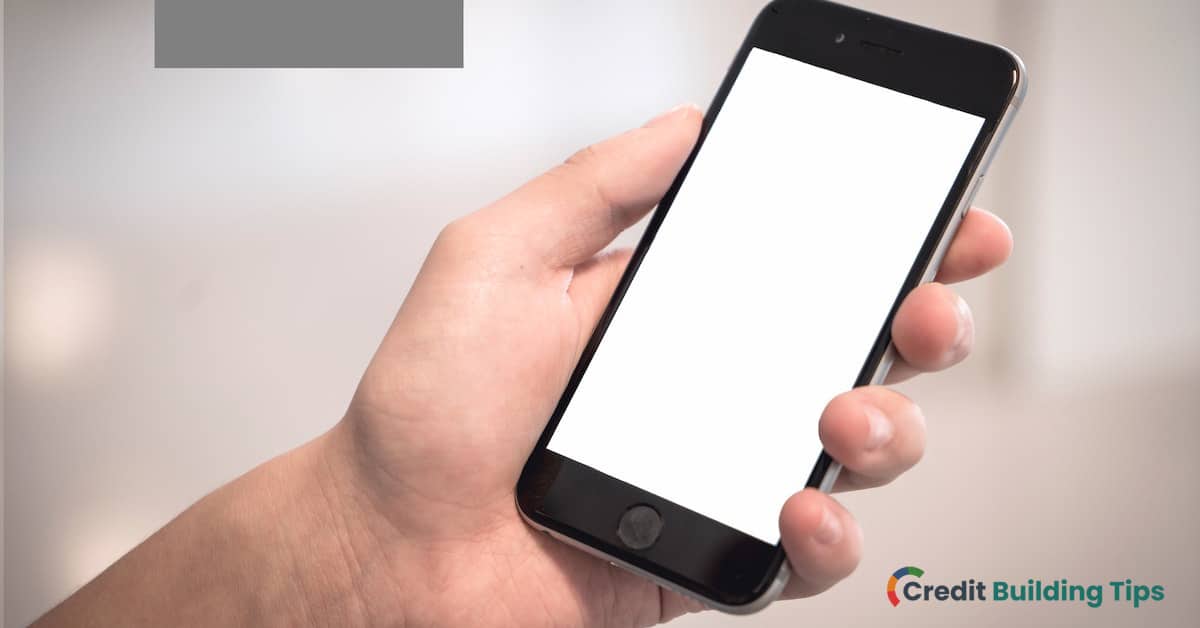
As we’ll discuss a little later on, you can receive the benefits of a traditional postpaid plan (if that’s desirable to you) with bad credit if you are able to join a family plan or find a cosigner.
If your credit isn’t awesome, but you need to get a new phone plan, one of the easiest ways to do so is to simply get a prepaid plan. As opposed to postpaid plans, where you pay a bill the month after using the service, prepaid plans involve paying a specific fee in advance every month or refilling your minutes, texts, and data as needed.
Prepaid cell phone plans don't require a credit check or a contract.
Since you are paying ahead of time for services that you have yet to use rather than agreeing to repay services you have already used, prepaid plans don’t require a credit check. This means that your credit won’t have any effect on your ability to get a prepaid plan. That being said, if you’re buying a new phone at the same time and you can only afford to buy it through financing options, you will face a credit check for the phone purchase.
If possible, you might choose to use an old phone or purchase a used phone with cash that you can then use with the prepaid plan. This way, you can completely avoid the credit check or a required deposit for having bad credit. Of course, you will need to pay your monthly bills in advance rather than after the fact, but you won’t face a hefty deposit upfront.
AT&T offers a number of prepaid plans, one of which includes unlimited high-speed data with 5G access for $50 a month (after an autopay discount of $15 per month.) One of their cheapest plans is only $25 a month when you pay for 12 months upfront, offering you 16 GB of data and excluding taxes and fees.
As of May 2023, AT&T is advertising that you can get a free SIM card when you bring your own phone and have the $15 activation fee waived when you sign up for one of their prepaid plans with a compatible phone.
Verizon also offers a number of Prepaid options, ranging from $30 to $60 a month when you enroll in autopay. Without autopay, these plans range from $35 to $70 per month.
The cheapest plan gives you unlimited talk and text but only light data use. The cheapest plan that allows a bit more wiggle room for data usage gives you unlimited talk and text, 5G access for capable devices, and 15 GB of data. Their priciest plan is the “Unlimited Plus,” which costs $60 per month after the $10 a month auto pay discount and includes a lot more bells and whistles for people that heavily rely on their smartphones.
Here are some other carriers that offer prepaid plans. Depending on your needs and expected usage, there’s likely a plan out there that will fit what you’re looking for:
No contract plans are similar to prepaid phone plans– in fact, prepaid plans fall under the umbrella of no contract plans. Rather than having to sign on for a contract of two or so years, you can sign on for a monthly plan that lets you opt out whenever you want without a cancellation fee.
A no-contract phone doesn't require that you commit to a specific carrier for several years as is common with traditional post-paid plans.
A number of the big-name carriers offer no-contract options, and there are also a number of smaller providers that advertise similar or less expensive plans. The strictest definition of prepaid plans requires that you pay for every minute you talk and every text you send, refilling your minutes, texts, and data when necessary. No-contract plans, on the other hand, only involve one set bill each month. It’s worth noting that the line between prepaid plans and no-contract plans is quite blurry.
For example:
Another option when it’s time to get a cell phone with bad credit is to join a family plan. Major cell service providers offer multi-line cell phone plans where you can share data with other people or even have access to unlimited data.
A family plan allows a number of mobile contracts to be linked under one account with only one monthly bill payment. They often offer a discount and only require a credit check for the primary account holder.
When you’re on a family plan, the main account holder’s credit report will be pulled in order to initially establish service. However, the people that are added to the plan won’t have to pass a credit check. In this situation, the primary account holder is the only one that is responsible when payments are missed, so it’s important to make sure that you are holding up your end of the bargain so you don’t cause trouble for them.
Joining a family plan allows you to bypass the credit check and maybe even save some cash.
For example:
Are you ready to get a cell phone but don’t have any credit history, a very thin credit profile, or straight-up bad credit? One option is to put down a deposit. Though this can be a bit frustrating, it’s a method worth considering if you have the cash on hand.
If you are not opposed to paying a deposit up-front but just want to get a regular cell plan, this is another option when you have no credit or bad credit. Deposits are usually eligible for refund once you have paid your bill in full and on time for a specific number of months. That being said, you'll want to read the fine print for each carrier as they can vary.
How much the deposit will be is going to depend on both your credit score and the carrier you are working with. The specifics of how deposits are handled vary between carriers, so it’s important that you take a close look at the fine print before moving forward.
Another option on the table is finding a cosigner to help you get a cell phone. Of course, this is only useful if the cosigner (either a family member or close friend, usually) has good credit. It’s also important to understand that the account would be opened solely in their name, meaning that they are the one that is responsible if you don’t hold up your end of the bargain and pay your bill.
If you can find someone with good credit that is willing to act as a co-signer, it can allow you to get a new phone with a traditional plan even if you have bad credit. The co-signer will be responsible if you fail to make payments.
One of the good things about this option is that the account can eventually be moved into your name by the co-signer. Though the carrier will usually run a credit check before this process is complete, you don’t necessarily have to pay a deposit.
Each carrier handles the process of having a co-signer and transferring account names differently, so it’s always a good idea to look at the fine print offered by the specific carrier you are considering working with. As an example, T-Mobile will allow account ownership to be transferred after 90 days.
If you’re trying to avoid the credit check that comes along with financing a new smartphone, consider trying to buy a pre-owned phone instead. These will often be quite a bit cheaper than the newest, snazziest versions of popular Apple and Android devices. You can also find refurbished options sometimes offered by wireless carriers, smartphone companies, or private sales.
Buying a pre-owned or refurbished phone could give you the ability to purchase the device outright rather than needing to obtain financing.
You will need to put a new SIM card in your phone and will also need to make sure that the phone is compatible with the carrier you use.
“Bad credit” can sound like kind of a vague term, but each cell phone company has its own specific definition of what number you need to be below in order to end up in this category.
Different companies have their own cut-off points for what they consider bad credit, but in general a score below 550-600 will be considered a subprime score.
For example:
For another example, let’s look at AT&T:
You are not completely out of luck when it comes to getting a phone if your credit is less than ideal. Additionally, it is possible not to pay a hefty deposit when you have bad credit. However, depending on how pressing your need for a new phone is, you might consider building your credit first before applying in order to make the process simpler and more straightforward.
If your primary concern is avoiding putting a deposit down when getting a cell phone and you want to sign up for a standard postpaid plan, here are your best options.
Enrolling in a family member with your relatives or friends will help you avoid paying a deposit even if you have bad credit. The credit check will only be for the primary account holder, and they will also be the one held accountable if bills go unpaid. For this reason, it’s important to make sure you are taking care of your end of the deal to ensure that they are not punished for your unpaid bills.
The other best option for avoiding paying a deposit when you have bad credit is to find a cosigner. The cosigner will be the person listed as the account holder, meaning that it will be their credit report that is pulled and their responsibility if you stop paying your bills.
Before we sign off, let’s take a look at some of the most common questions about the relationship between cell phones and credit scores.
There are a number of different ways that you can finance a cell phone:
Major phone manufacturers like Apple or Samsung typically offer financing options. This type of financing typically works in a similar way as credit cards, meaning that a line of credit will be opened in your name.
This means that activity on your account will be reported to the credit bureaus. If you make your payments on time and keep your account in good standing, it can help you build credit over time.
There are probably going to be a number of different financing options when you buy a phone from the wireless carrier you plan on using. One way is to lease a phone with the option to upgrade in the future. Another is to pay off the phone monthly without interest (for a set period of time) through an installment plan.
Activity regarding your financing or leasing agreement usually isn’t reported to the major credit bureaus. This means that this method of getting a phone typically won’t help you build credit.
You might find that other third-party retailers offer financing for phones, such as electronics stores. It’s common for these types of stores to offer credit cards that come with 0% interest for a specific period of time.
Financing a cell phone can, in some cases, affect your credit. Here are the three ways it can have an impact on your scores:
Fortunately or unfortunately, depending on your perspective, cell phone providers usually won’t report your payments to the three major credit bureaus. This is the case even though they will typically check your credit score when making a decision about whether to approve you for an installment plan or a phone contract. Since these carriers don’t normally report to credit bureaus, it means that your on-time payments won’t help your credit score.
Though it might seem unfair, missing payments can hurt your credit score, even though on-time payments don’t help. For the record, one or two late payments usually won’t impact your credit as long as you catch up on the money you owe before the carrier chooses to terminate the contract and turn the account over to collections.
If the account does end up in collections, though, it will hurt your credit. Collections accounts show up as a tradeline on your credit report. This won’t just harm your score, but it won’t be something that lenders look favorably on when determining your creditworthiness for a loan or line of credit.
It’s also possible to hurt your credit score if you disconnect your phone services without paying the remaining balance or the early termination fee. Additionally, terminating your contract prematurely can result in a lowered credit score if you don’t pay the money that you owe.
If you want all of your on-time payments to help your credit, there are services you can use, like Experian Boost. These monitor your checking account for on-time payments to service providers like cell phone companies and utility companies. Though this can potentially boost your credit score by adding up to two years of payment history, it’s worth noting that you will need to give up your bank account and other information in order to set up the service.
If you need a cell phone right now and your credit is bad, using one of the many options listed above will help you achieve your goal. When getting a new device, you could choose to purchase a cheaper pre-used or refurbished option or even ask your friends and family if they have an old phone they’re no longer using. Older models tend to be cheaper than newer models as well.
On the other hand, if you are simply trying to plan ahead for getting a new phone and plan down the road, you might choose to use this time to work on improving your credit.
Are you ready to build your credit so you don’t have to spend time researching things like how to get a cell phone with bad credit? Are you ready to increase the number of financial opportunities available to you by cleaning up your credit report?
If so, make sure you check out our Credit Building Tips blog for tons of useful resources that will help you improve your credit scores.
It's easy to not think about your credit score until your gearing up to apply for a loan.
 There are a number of loan options for mobile homes for people that have bad credit-- for example, people with a credit score of 500 can qualify for an FHA loan if they are able to put 10% down. Beyond that, there are some alternative methods you can explore, including finding a seller that is willing to finance, lease-to-own opportunities, finding a co-signer, and more.
There are a number of loan options for mobile homes for people that have bad credit-- for example, people with a credit score of 500 can qualify for an FHA loan if they are able to put 10% down. Beyond that, there are some alternative methods you can explore, including finding a seller that is willing to finance, lease-to-own opportunities, finding a co-signer, and more.In most cases, you will find that lenders typically require a minimum credit score of at least 580-620 in order to receive a mobile home loan.

That being said, it is possible to receive financing with a lower credit score. There are a number of loans you can apply for when buying a mobile home, many of which will require that you make a larger-than-usual down payment if your credit score is less than ideal.
A minimum credit score of 580-620 is often required in order to receive a loan for a mobile home.
What this means is that you might find that you qualify for a mobile home loan even if you do have bad credit, depending on which credit scoring model is being used and depending on what you mean by bad credit.
The lowest category of FICO credit scores is "poor," with scores ranging from 300-579. The lowest category of VantageScore credit scores is "very poor," ranging from 300-499.
For FICO scores, a "bad" score is typically considered below 670. Under this number, a credit score falls into the ranges of "fair" or "poor."
For VantageScore models, a score of less than 661 means that your credit score is "fair," "poor," or "very poor."
When you are at the point where you know what type of mobile home you're looking for, and you know where you want to put it, the next step is to determine how you will finance the purchase.
There are a number of different loan types available for buying mobile homes. It is worth taking a look at each one, as they have different requirements for qualifications, including different minimum credit scores.
Individuals can receive mobile home loans offered by the Department of Housing and Urban Development through the Federal Housing Administration loan program.
This includes:
The primary difference between these two loan types is that your mobile or manufactured home does not need to be attached to the land when you apply and receive an FHA Title I loan. On the other hand, the home needs to be attached permanently to land owned by the borrower.
FHA loan programs work with borrowers that have credit scores that are as low as 500.
If you have less-than-ideal credit, a Title I FHA loan might be a good place to start looking for a mortgage.
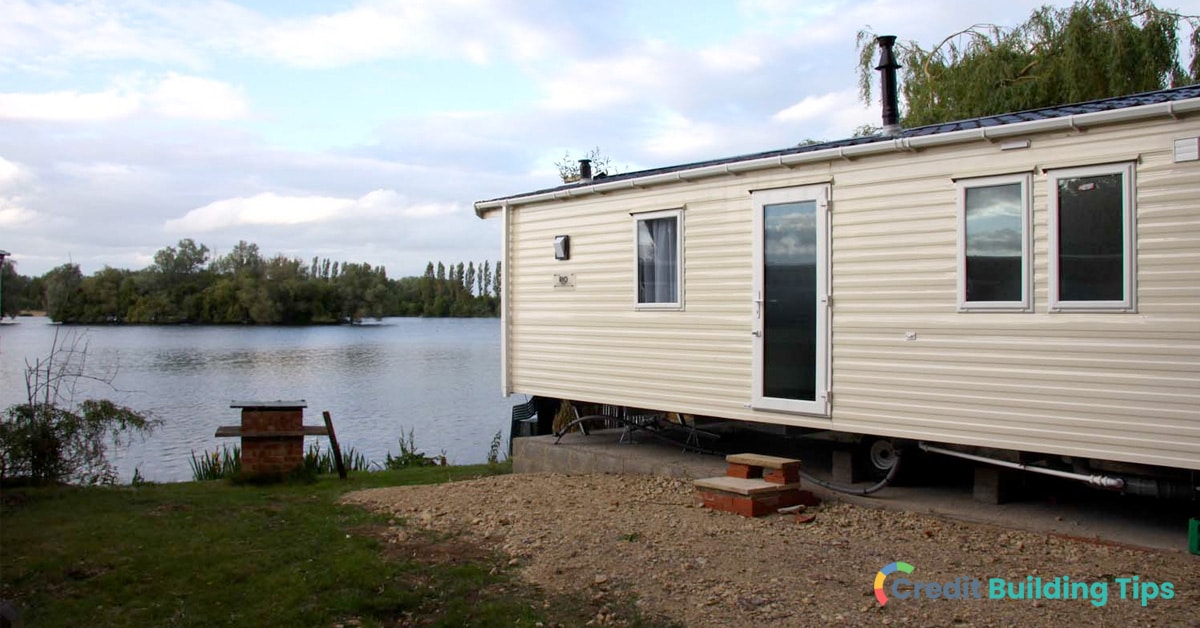
With a 10% down payment, they accept credit scores as low as 500 to 579. If you have a credit score above 580, you can make a down payment as low as 3.5%.
There are a number of ways that a Title I loan can be used when it comes to mobile homes, including:
Even if the buyer isn't planning on purchasing the land where the mobile home will go or doesn't already own this land, lenders can offer Title I loans for mobile homes.
Borrowers that don't own the land and aren't planning on buying the land where the mobile home is going to stand will need to submit a signed lease with an initial term of three years or more for the mobile home plot.
It's common for mobile homes to be placed in mobile home parks or manufactured home communities, where residents can lease rather than own the land their home is on.
There are a number of requirements you'll want to be aware of when applying for this loan program.
When it comes to the maximum loan amount, the following requirements must be met to qualify:
The maximum loan term required for one of these mobile home loans are:
Title II loans can be used to purchase a manufactured or mobile home along with the land that the home will stand on. This is the case as long as you meet all of the requirements of the loan.
The minimum required credit score for Title II loans are the same as those for Title I: scores of 500-579 must put 10% down and scores of 580 or higher can put 3.5% down.
Real estate investors aren't allowed to get this type of loan-- it's only for people that are using the mobile home as a primary residence.
The other requirements for qualification include the following:
All of this means that this type of loan can't be used for mobile homes in mobile home parks or manufactured home communities.
Before you start looking down obscure paths for your mobile home financing, the easiest answer might be right under your nose.
You will need to have a minimum credit score of 620 to qualify for a loan through the Freddie Mac Home Possible mortgage program. There are a variety of options to choose from if you are able to go this route:
Depending on your credit score, it's possible to put as little as 3% down for one of these loans. It's also possible in some instances to use grant money or gifted money toward your down payment.
Are you thinking about opening a new credit card but you aren't sure whether you should wait until after you buy your house? Check out our article about how opening a new account will impact your ability to buy a house.
There are some lenders that offer Fannie Mae mortgages to individuals that want to purchase a mobile home. This occurs through what is known as the MH Advantage program.
A minimum credit score of 620 is required to qualify for the MH Advantage program.
You will need to satisfy a variety of criteria, including:
Certain architectural design, construction, and energy efficiency standards also need to be met to qualify for the MH Advantage program.
Here are a few other key points about these loans you'll want to know:
It's possible that you could qualify for a loan that is insured by the Department of Veteran Affairs if you belong to the military community.
There are no minimum credit score requirements for VA loans.
When it comes to mobile homes, you can use a VA loan to:
If you qualify for a VA loan, you might be able to receive 100% financing for your mobile home.
Are you trying to improve your credit? Take a look out our guides to credit repair hacks, removing derogatory marks from your credit report, and deleting collections in exchange for payment.
If you are worried that you aren't going to be able to qualify for a traditional home loan to purchase your mobile home, or you don't want to deal with the often arduous mortgaging process, you could also consider a personal loan.
There are a number of pros and cons to using personal loans rather than traditional mortgages to purchase a mobile home.
Some of the advantages include:
On the other hand, the major drawback of using a personal loan for purchasing a mobile home is that the interest rates will likely be higher than those of a traditional mortgage. This is precisely because the home isn't used as collateral for a personal loan the way it is for a home loan.
Are you on a mission to learn more about improving your credit? Take a look at our guides to how long tradelines stay on your credit report, using installment loans to rebuild bad credit, and writing hardship letters to credit card companies.
Finally, you might also choose to apply for a chattel loan, which is a special kind of personal property loan that could be a good choice for a person with bad credit.
These loans are designed for the specific purpose of purchasing expensive vehicles, including:
Chattel mortgage lenders will often only require a minimum credit score of around 575, which is quite a bit lower than the minimum credit score for many other loan types.
With chattel loans, the property being financed serves as collateral for the loan. You can typically get a chattel loan even if you don't own (and don't plan to purchase) the land where the mobile home will stand. For this reason, chattel loans are popular choices for individuals that are expecting to lease a lot in a mobile home park.
There are some lenders that offer mobile home chattel loans that are government insured by:
There are a few important differences between chattel loans and traditional mortgages:
Chattel loans will commonly come with higher interest rates than traditional mortgages-- typically they are 0.5 to 5 percentage points higher.
When you have bad credit, and you're motivated to buy a mobile home, it's a good idea to have some tips and tricks up your sleeve. This can help you save money during the process and make the financing process easier.
It's important to remember the old adage-- when there's a will, there's a way. The worse your credit is, the more creative you might have to get. That doesn't mean you are completely out of luck when it comes to buying a mobile home.
In addition to our extensive list of loan options that you can apply for even when your credit is subpar, here are some alternative methods you can try:
Is it time to clean up your credit report? Check out these guides to removing charge offs, collections, and hard inquiries from your credit file.
If you are interested in buying a mobile home with bad credit, you are not entirely out of luck. However, the options available to you are going to depend on just how bad your credit is, how much money you are planning on spending on a mobile home, the amount you can put down for a down payment, and more.
Sometimes, time is of the essence when you are trying to get a loan. On the other hand, if you aren't in a rush to buy a mobile home, it might be worth taking the time to improve your credit before you start shopping around and filling out applications.
Even though mobile homes are quite a bit cheaper than traditional homes, you will still be able to save a significant amount of money over the life of the loan if you are able to lock in the best interest rates.
Are you ready to start improving your credit so you can purchase a mobile home easily and with the best loan rates and terms? If so, make sure you check out the rest of our Credit Building Tips blog for tons more information about boosting your credit, cleaning up your credit report, and improving your financial health.
If a credit card company has been unable to recover the money that they lent you, there is a certain period of time (known as the statute of limitations) during which they can bring a lawsuit against you.
If they obtain a judgment from a court of law, they can use a number of methods in accordance with state law to try and collect on the judgment. These methods might include garnishing your wages, filing a lien against your real estate, executing against personal property, and more.
 There are several periods of time to be concerned with when it comes to credit card judgments-- the statute of limitations in each state, laws about judgment expiration and renewal in each state, and the length of time a judgment remains on your credit report.
There are several periods of time to be concerned with when it comes to credit card judgments-- the statute of limitations in each state, laws about judgment expiration and renewal in each state, and the length of time a judgment remains on your credit report.Credit card companies can file a lawsuit in order to try and get a credit card debt judgment against you if you're account is in default.

If the judgment is awarded to them, then they can use a wide variety of collection methods against you in order to get the money they are owed.
A judgment is an order that is entered by a court of law. This order indicates the findings of the court.
When you borrow money from a credit card company, you are legally obligated to pay the debt back to the creditor. This is the case when you have a credit card account, receive financing for a large purchase, or get a line of credit from a bank.
When a creditor receives a judgment, they are extended the right to use collection methods above and beyond what is allowed without a judgment in order to collect their debt.
The first step in obtaining a judgment is to file a lawsuit against a borrower. They do this in a civil court and will file a document known as a complaint. This complaint will also be delivered to you.
There are a handful of ways that credit card companies can achieve judgments after they have filed their lawsuit, including:
There are a number of methods that credit card companies can use once they obtain a judgment in order to try and collect the debt they are owed. Without a judgment, credit card companies can not use these tactics.
The following methods may be allowed under state law:
If a credit card company has obtained a judgment against you, how long that judgment will last before expiration depends on state law. When a judgment expires and is no longer renewable or revivable, it means that the creditor can no longer use the methods afforded to them under the judgment to collect on the debt.
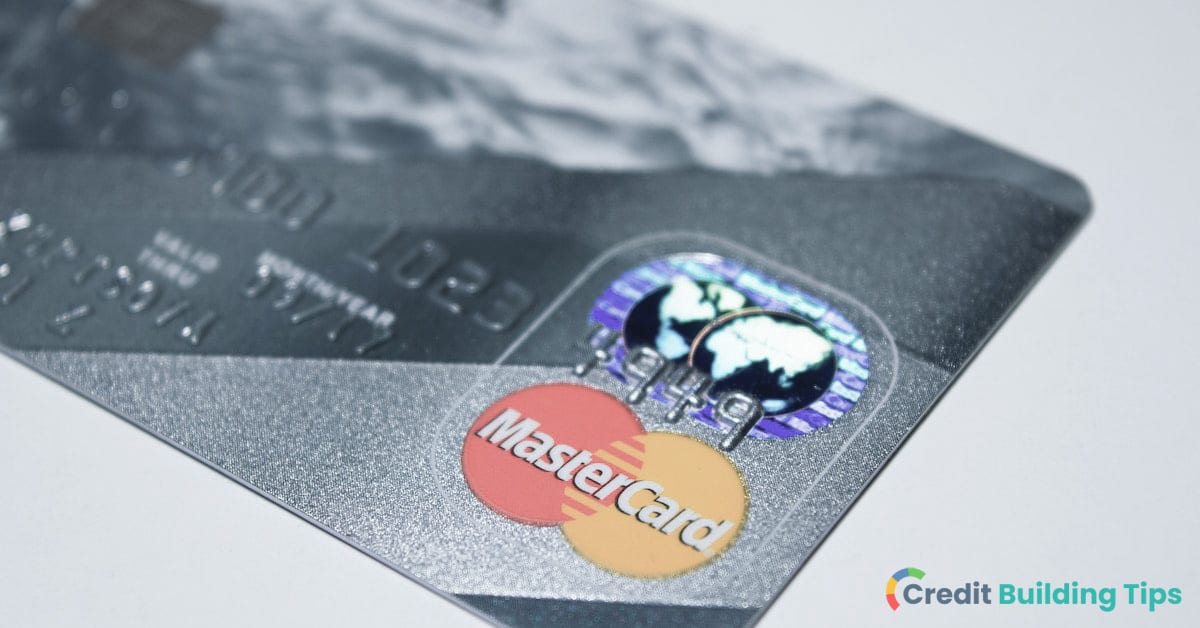
Let's look at the laws in all 50 states. However, it's important to note that laws are subject to change, and certain exceptions may apply. If you have questions about how long a credit card judgment lasts, it's a good idea to get in touch with an attorney in your state.
Are you trying to improve your credit and you're wondering whether you should pay for a credit repair company to help fix your credit? Check out our guide to the cost of credit repair services.
It's worth noting that there is a statute of limitations for credit card debt in each state, which sets a limit on how long lenders and collection agencies have to sue an individual over debt.
Basically, there is only a limited period of time in which debt collectors can file a lawsuit against you. How long this time frame is depends on both the specific type of debt and the state, you live in. However, in many cases, it ranges from three to six years.
Debt collectors no longer have the right to sue you in an attempt to collect on the debt after the statute of limitation has passed.
Even though you can't be sued after the statute of limitations has passed, that doesn't mean that you're entirely off the hook. They can continue to try and collect on the debt, but they must stay within the bounds of the law in these attempts.
Credit card debt is considered an "open-ended account" as opposed to a written contract, oral contract, or promissory note. The type of debt and the state you live in determines the statute of limitations.
Has your credit report seen better days? This article looks at four simple ways to remove derogatory marks on your credit.
The following states have a three-year statute of limitations for open-ended accounts:
The following states have a four-year statute of limitations on open-ended accounts:
The following states have a five-year statute of limitations on open-ended accounts:
The following states have a six-year statute of limitations on open-ended accounts:
Rhode Island is an outlier, with a ten-year statute of limitations on open-ended accounts.
Do you have a debt currently in collections? To avoid an outcome where a judgment is made against you, consider striking a deal with the debt collector.
If a lender has successfully taken you to court in order to try and recover funds that they lent to you, it historically would have appeared on your credit report. The reason this information used to show up on your credit report is that potential lenders want to know that it could be risky to loan you money.
In the past, even if you paid back the money you owed or they recouped their money through other means (aka, the judgment has been "satisfied"), it would still appear on your credit report.
Judgments used to stay on your credit report for seven years starting from the filing date until the credit bureaus stopped recording judgments in April 2018.
However, all of this changed once the credit bureaus decided to stop reporting judgments as of April 2018. This means that judgments no longer impact your credit score and do not appear on your credit report.
That being said, there are a few ways that judgments (which are public records, by the way) can still impact your finances:
Are you on a mission to improve your credit? Check out our posts about credit repair hacks to increase your credit score, bank overdrafts and credit scores, repairing credit after identity theft, and removing charge-offs from your credit report.
Even though having a judgment against you won't show up on your credit report, it's really not a situation you want to be in. Creditors can garnish your wages, file a lien against your real estate, execute against your personal property, or levy your bank account, for example, in order to recoup their funds if they win a judgment against you.
If you are behind on your credit card debt, it's best to try and get on top of it right away. You might find that you can reach an agreement with the creditor using a hardship letter if you have a strong argument for why you are behind on your debt. Though it can be tempting to avoid thinking about your debt after your first 30-day late payment mark, it's really best to avoid an outcome where the credit card company is able to garnish your wages or otherwise threaten you financially.
Are you ready to improve your credit score and get on top of your debt? Make sure you check out the rest of our blog for more useful resources and informative articles.